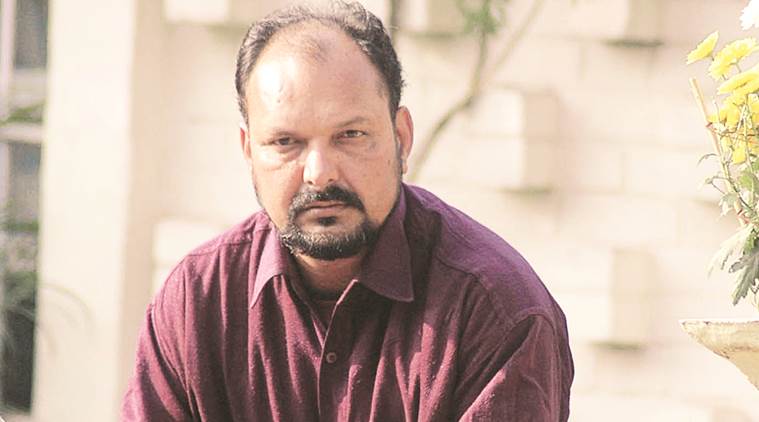 Theatre director Sudhesh Sharma. (Express)
Theatre director Sudhesh Sharma. (Express)
The recently concluded 8th Theatre Olympics in Chandigarh was a huge hit with the audiences and a meeting ground for theatre practitioners and appreciators. Please tell us about the effort and planning which took place for the event?
This is the 8th edition of the Theatre Olympics, which is the longest theatre festival in the world, lasting 51 days. More than 400 plays were performed in 17 cities by theatre groups from over 30 countries. In Chandigarh, this was a two-week long event, with productions from across the country and also a production from Poland as well. The festival received a resounding response from the audiences. It was all a collective effort, as the National School of Drama, the Chandigarh Sahitya Akademi, Tagore Theatre Society, Chandigarh Administration, Haryana Kala Parishad and theatre groups and volunteers from the city joined hands to take care of every small detail to make event a success. Folk dancers and musicians welcomed audiences to the Tagore Theatre, as the space wore a festive and special look. We organised interactions with director and actors of the production, and it gave a chance to young actors to understand the process of creation. Also, as part of ‘Master Class’, theatre practitioners got a chance to interact with renowned theatre directors, writers, dancers and others from the world of theatre.
What was unique about the plays which were performed in the city?
‘Macbeth’, directed by Ratan Thiam, was performed in Manipuri. Even though most don’t understand the language in Chandigarh, the two-hour play received a standing ovation, as the production’s presentation, light designing, body movements and costumes were exemplary. Theatre has its own language, which people got to view and feel here. ‘Across the Sea’ was another unique play, which was sans dialogues. With puppets, sounds, gestures, props, the director established a connect with the audience. Similarly, a Polish production received a wonderful response. As part of the festival, the audience got a chance to view diverse productions with varied themes, subjects, treatments, and it was a chance for actors and directors to learn and get a new dimension and perspective about their own work.
Were you apprehensive about the reaction of the audience to plays in languages they didn’t understand?
Yes, I was. We wanted this to be an educational festival through which everyone could learn something, especially amateur artistes. When they watched professionals on stage during the festival, they must have wondered, “We haven’t done this yet, we haven’t seen this before.” Theatre of this kind and variety is not easily accessible. We wanted people from various walks of life to be part of this and that’s why decided not to have tickets for the shows. It was heartening to see the response of the people and the respect they gave to the art.
How has the city’s audience changed over the years?
Three decades back, television ruled the homes and hearts of people. But they soon got tired of it. Today, there are many channels on television, but one doesn’t get any creative satisfaction from the content. When you watch a play, you take something from it. It gives you a chance to think, reflect, and question. Theatre helps you grow mentally.
You see something, you think something. In the last 20 years, the change in theatre has been substantial. The reason is people’s awareness about theatre and second, they see theatre a tool for development. Now, theatre is part of school curriculums. Theatre awakens you, raises questions, both from the point of view of the viewer and the practitioner. Before 2000, there was no festival in Chandigarh, in 1999 Bharat Rang Mahotsav began in Delhi and people from here would go to Delhi to watch plays. Now, Chandigarh hosts more than 12 theatre festivals in a year, and we now have people standing and watching theatre.
What do you think needs to change in the theatre landscape?
What has not changed in the last few years, is the fact that majority of the shows are not ticketed. People want to buy tickets to watch big actors, but not local groups. This must change to give theatre its due and also independence to practitioners to pursue theatre as a full-time career.
How do you think this can be changed?
Theatre groups should market themselves through social media, especially in today’s competitive times. This is not a one-man show; theatre doesn’t have a body of management to take care of all this. Theatre is a team effort.
What draws audiences to theatre?
Even today, we are searching for social messages and values; so the audience keeps searching for good content. A play shows the viewer the problem, as well as gives a food for thought. Alternatively, it can also leave questions in the minds of the viewers. It enriches both the viewer and the performer. I feel that theatre teaches you a lot and only a large- hearted person can pursue it. If theatre generated income every other person would be looking to do it.